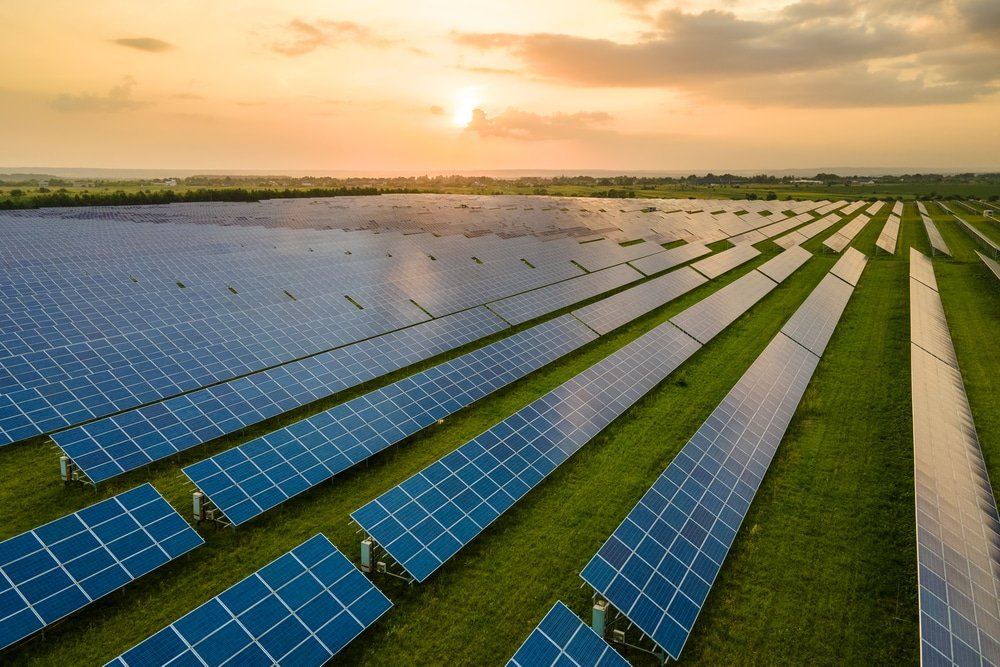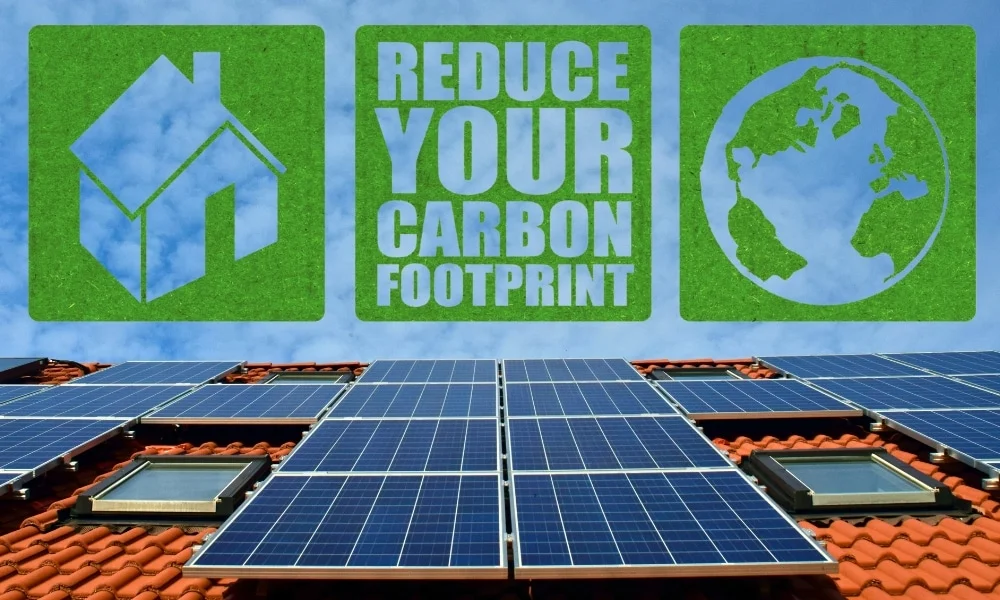Solar energy is not just about saving money. It is also about saving the planet. Every home and business that switches to solar helps in reducing harmful greenhouse gases. In India, where electricity demand is growing fast, using solar power can make a huge difference. By installing solar panels, you can offset your carbon footprint and contribute to a cleaner future.
Anúncios
This article explains how solar energy reduces carbon emissions, why it is important for India, and how you can calculate your own impact.
What Does Carbon Footprint Mean?
Your carbon footprint is the total amount of greenhouse gases released because of your daily activities. It includes carbon dioxide (CO2), methane, and other gases that trap heat in the atmosphere. Activities like driving cars, using air conditioners, and consuming electricity from coal-based power plants increase your footprint.
Anúncios
India is one of the largest consumers of coal for power generation. This makes our electricity highly carbon-intensive. By reducing dependence on fossil fuels, we can lower our footprint and fight climate change.
Why Solar Energy Is a Game Changer in India

Solar energy is clean, renewable, and available in abundance. India has an average of 300 sunny days per year, making it perfect for solar adoption. Unlike coal or natural gas, solar panels generate electricity without releasing harmful gases.
Every kilowatt-hour (kWh) of electricity generated by solar replaces electricity that would have otherwise come from fossil fuels. This directly lowers carbon emissions. For example, generating 1 kWh from coal releases about 0.9 kg of CO2. If your solar system produces 1,000 kWh in a month, you save around 900 kg of CO2 emissions.
Also Read Solar Feasibility Study in India: A Complete Guide for Rooftop Solar and Large Projects
Anúncios
How Solar Energy Helps Offset Carbon Footprint
1. Replacing Coal-Based Power
Coal plants are responsible for a large share of India’s carbon emissions. Using rooftop solar reduces the need for coal.
2. Reducing Transmission Losses
Electricity from power plants travels long distances before reaching your home. During this journey, some electricity is lost. With rooftop solar, the electricity is generated right where it is used, reducing losses and emissions.
3. Promoting Energy Independence
By producing your own clean electricity, you depend less on fossil fuels. This reduces national dependence on coal imports and lowers the overall carbon footprint of the energy sector.
Solar Energy and Indian Households
Installing a solar system at home is one of the most effective steps to cut your footprint. A typical 5 kW rooftop solar system in India generates around 600–700 units per month. This offsets about 6–7 tonnes of CO2 every year.
To put this in perspective: planting one tree absorbs about 22 kg of CO2 in a year. Your 5 kW solar system offsets the same carbon as planting nearly 300 trees every year.
Solar for Businesses and Industries
Commercial buildings and factories use large amounts of electricity. By switching to solar, they can cut down huge amounts of emissions. Many companies in India are adopting solar to meet their corporate sustainability goals. Apart from reducing costs, solar also improves their brand image as an environmentally responsible business.
Calculating Your Carbon Savings with Solar
Here is a simple way to calculate:
- Find the annual generation of your solar system (in kWh).
- Multiply it by 0.9 kg (average CO2 saved per unit in India).
- The result is your annual carbon savings.
Example:
A 10 kW solar system generates around 14,000 units per year.
Carbon savings = 14,000 × 0.9 = 12,600 kg (12.6 tonnes of CO2).
Other Benefits of Offsetting Carbon with Solar
- Lower Electricity Bills: Solar power reduces monthly electricity costs.
- Government Incentives: Subsidies and tax benefits make solar more affordable.
- Energy Security: No need to worry about rising electricity tariffs.
- Health Benefits: Less air pollution leads to cleaner air and fewer health problems.
Challenges in Reducing Carbon Footprint with Solar
While solar energy is growing in India, there are some challenges:
- High Initial Cost: Even with subsidies, upfront cost can be high.
- Space Requirement: Rooftop space is needed for installation.
- Awareness Gap: Many people still don’t understand the full benefits of solar.
However, with falling solar panel prices and increasing government support, these challenges are reducing.
Smart Tips to Maximize Your Carbon Savings
- Install the right solar system size for your needs.
- Use energy-efficient appliances along with solar.
- Keep panels clean for maximum output.
- Consider adding a battery system for backup and better utilization.
- Monitor your solar system performance with apps or smart meters.
FAQs on Offsetting Carbon Footprint with Solar Energy
Q1. How much carbon can one solar panel save in India?
A standard 350W solar panel generates about 40–45 units per month. This saves around 35–40 kg of CO2 every month.
Q2. Can solar completely eliminate my carbon footprint?
It depends on your lifestyle. Solar can offset a big part of your footprint, especially from electricity, but you may still have emissions from transport or other activities.
Q3. Is solar really effective in Indian cities with pollution and dust?
Yes. Regular cleaning of panels ensures good performance even in polluted cities.
Q4. Do I need batteries to offset carbon?
Not necessarily. Even grid-connected systems save carbon by reducing fossil fuel use. Batteries are useful if you face frequent power cuts.
Q5. How long will it take to recover the carbon footprint of making solar panels?
Usually 1–2 years. After that, the solar panel keeps generating clean energy for 25+ years.
Conclusion
Switching to solar energy is one of the best ways to offset your carbon footprint in India. With abundant sunshine, falling costs, and government support, solar is not just an eco-friendly choice but also an economically smart one. Every home and business that installs solar panels is contributing to a greener India.
By making the shift today, you are not only saving on electricity bills but also planting the equivalent of hundreds of trees every year. Solar energy is your personal step towards a cleaner, healthier, and sustainable future.












1 thought on “Offsetting Your Carbon Footprint with Solar Energy: A Complete Guide for Indian Homes and Businesses”